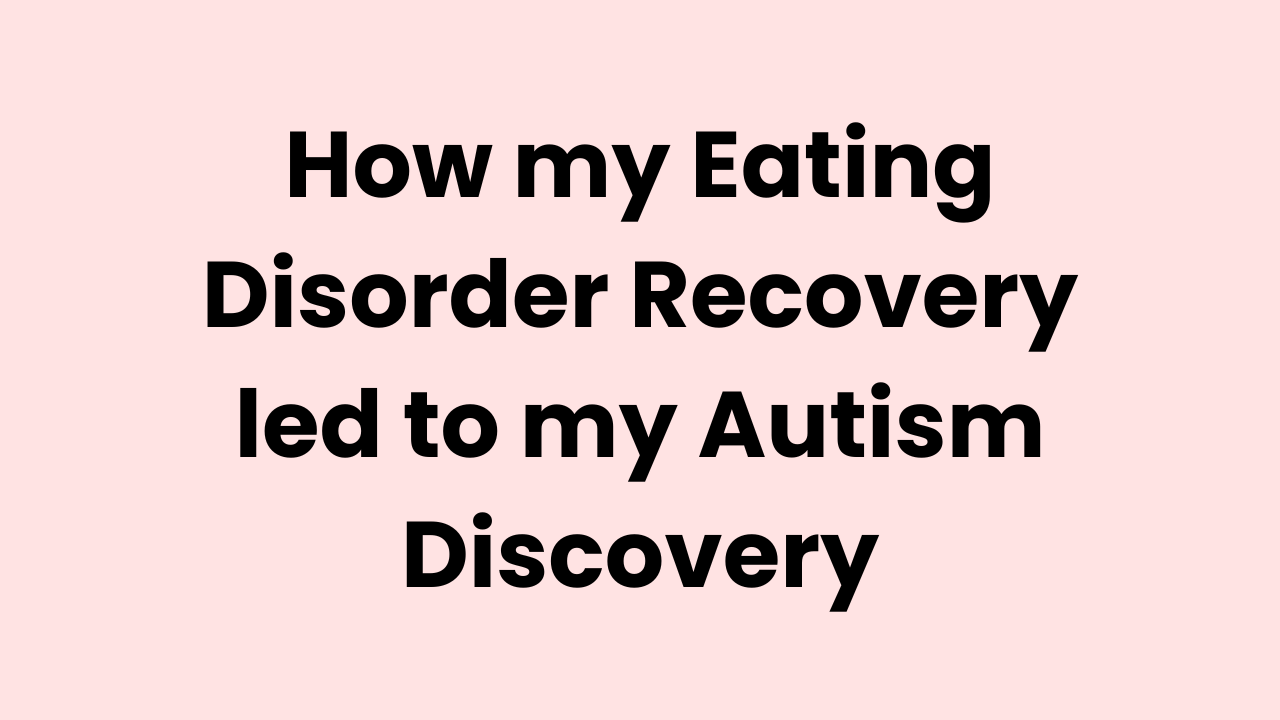How my Eating Disorder Recovery Led to my Autism Discovery
Nov 19, 2021
One of the questions I am asked most frequently is: “How did discovering you’re autistic impact your eating disorder recovery?”
My answer is often the opposite of what people might expect.
I didn’t discover I was autistic until after I was nearly recovered...and I have my very first 1-1 coaching client to thank for that.
To share a snippet from my book Rainbow Girl...
“What led you to reach out to me?” I asked her during our first session.
“I read your story on your blog, and what you shared about being labeled as “too complex” really resonated,” she said. “Besides being diagnosed with anorexia, I am also autistic. No healthcare professional knew how to support me through both, saying I had to learn to cope with my autism before I could recover from my anorexia. But when I went to see a therapist to help me with the autism, all they said was that they couldn’t because anorexia was hindering my ability to think clearly.”
Through speaking with my client and researching autism, my entire life suddenly fell into place.
Growing up, I never knew what was “wrong” with me. I thought I was just “weird” for preferring comfort over style, staying in vs going out, and playing soccer vs putting on make-up.
Besides the fact that I barely had any friends, this “weirdness” was never an issue…until my desire for predictability, routine, and, as my mom likes to call it, “algorithmic” thinking, manifested as an eating disorder at the age of 11.
I spent years in and out of treatment, where they tried to attack the symptoms without ever addressing the real underlying issues that contributed to the disordered relationship with food & exercise in the first place.
At the age of 15, I was kicked out of treatment and was told that “I just had to accept the fact that I was never going to get better.”
My life (or rather: survival) went downhill from there, but it was hitting rock bottom that taught me I was either going to save myself, or no one else was.
At the age of 17, I finally committed to recovery FOR ME. It wasn’t easy, and several years later I still couldn’t understand why my “eating disorder behaviors” were appearing in areas of my life that were not even food or exercise related.
If my ED recovery journey was like baking a cake, my autism discovery was the cherry on top. 🍒
Discovering I’m autistic allowed me to disentangle what had long been termed “ED behaviors” from my autistic traits – and ultimately help others do the same.
My mess has become my message, and I want to thank YOU for allowing me to spread this message every day. However lonely and hopeless you may feel, I want to remind you that there is ALWAYS at least one person who understands and wants to help.
Not only that, but genuine connection truly does have a way of “paying it forward.” If I hadn’t mustered the courage to tap into my calling and begin a coaching business, I wouldn’t have met my first autistic client (and dear friend) when I did.
...and if I hadn’t met her, you likely wouldn’t be reading these words.
If you want to read my full story about growing up undiagnosed autistic and how this contributed to my eating disorder (recovery) and autism discovery, grab your copy of my book Rainbow Girl!



